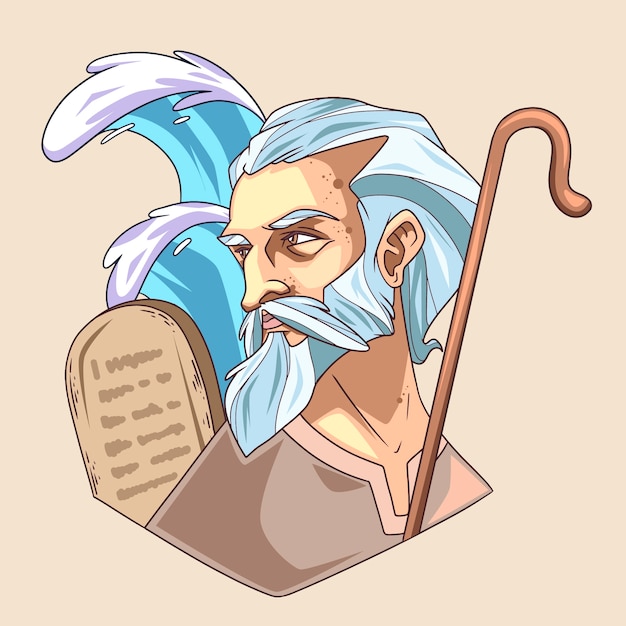Poseidon – Fascinating Facts About the Greek God of the Sea

Poseidon was one of the twelve Olympian gods in Greek mythology.
Poseidon was the god of the sea, earthquakes, and horses.
He was often depicted as a bearded man with a trident, a three-pronged spear.
Poseidon’s domain was the ocean, and he controlled all aspects of it.
He was one of the most powerful gods and commanded respect from both mortals and other immortals.
Poseidon was known for his volatile temperament and was quick to anger.
He could create massive storms and cause earthquakes with a single wave of his trident.
Poseidon was married to Amphitrite, a sea nymph, but was notorious for his many affairs and numerous children.
He had a fierce rivalry with Athena, the goddess of wisdom, which led to various mythological conflicts.
Poseidon is credited with creating the first horse, as he struck his trident in the ground and a horse emerged.
Sailors and seafarers often prayed to Poseidon for a safe journey and calm seas.
Poseidon was the protector of the city of Athens and was worshipped in the famous temple Erechtheion on the Acropolis.
He was often associated with horses and was seen riding golden chariots pulled by mighty sea creatures.
Poseidon’s trident was a symbol of power and authority, and it represented his dominion over the sea.
According to legend, Poseidon and Apollo helped build the walls of Troy but were angered when the city was not named after them.
Poseidon – Fascinating Facts About the Greek God of the Sea part 2
Poseidon had a son named Triton, who was depicted as a merman or a fish-tailed man.
He was known for his numerous amorous adventures, and his children included famous figures such as Theseus and Pelias.
Poseidon played a crucial role in several famous myths, including the story of Odysseus and the cyclops Polyphemus.
In some versions of the myth, Poseidon transformed Odysseus’ crew into dolphins as punishment for blinding the cyclops.
Poseidon was sometimes depicted with a fish tail instead of legs, resembling a merman or a sea creature.
He was the brother of Zeus and Hades, and they divided the world amongst themselves: Zeus ruling the sky, Poseidon the sea, and Hades the underworld.
Poseidon helped Zeus in the war against the Titans, using his power to create massive waves and floods.
He was also associated with earthquakes and was believed to be responsible for the violent shaking of the earth.
Poseidon was worshipped throughout ancient Greece and had numerous temples dedicated to him in various cities.
Some of the most famous temples to Poseidon were located near the sea, emphasizing his connection to water.
He was often depicted riding a giant seahorse, symbolizing his control over marine life.
Poseidon’s trident was said to have the power to summon earthquakes and control the weather, making him a feared and respected deity.
The Roman equivalent of Poseidon was Neptune, and many aspects of their mythology and stories are interchangeable.
Poseidon was often depicted as having a long, flowing beard, representing his wisdom and old age.
In some stories, Poseidon was the father of the monster Scylla, who terrorized sailors in the Strait of Messina.
He had the power to influence the tides and create massive waves, making him both feared and revered by sailors.
Poseidon was believed to reside in a palace under the sea, surrounded by a variety of sea creatures.
He was sometimes called the Earth-Shaker due to his ability to cause earthquakes and make the ground tremble.
Poseidon had a great love for the sea and often sought solace and peace in its depths.
He was known for his love of competition and was the patron god of many sports, especially those involving water.
Poseidon had a son named Orion, a giant and a renowned hunter in Greek mythology.
He was also associated with fertility and was believed to have the power to create springs and wells.
Poseidon was called upon by sailors to guide them through treacherous waters and keep them safe from monsters like the Kraken.
He was often portrayed as a strong, muscular deity, highlighting his association with physical strength and power.
Poseidon was revered by seafaring nations, such as the ancient Greeks and Romans, who relied on the sea for trade and exploration.
He was sometimes depicted riding a chariot pulled by seahorses or other mythical sea creatures.
Poseidon’s wrath was said to be capable of sinking entire fleets and causing massive destruction.
He had the power to change his form into various sea animals, allowing him to move freely in his watery domain.
Poseidon’s influence extended beyond the sea, as he was also associated with rivers, lakes, and springs.
He was a complex deity, embodying the unpredictable and sometimes violent nature of the sea, but also representing its vast beauty and power.

